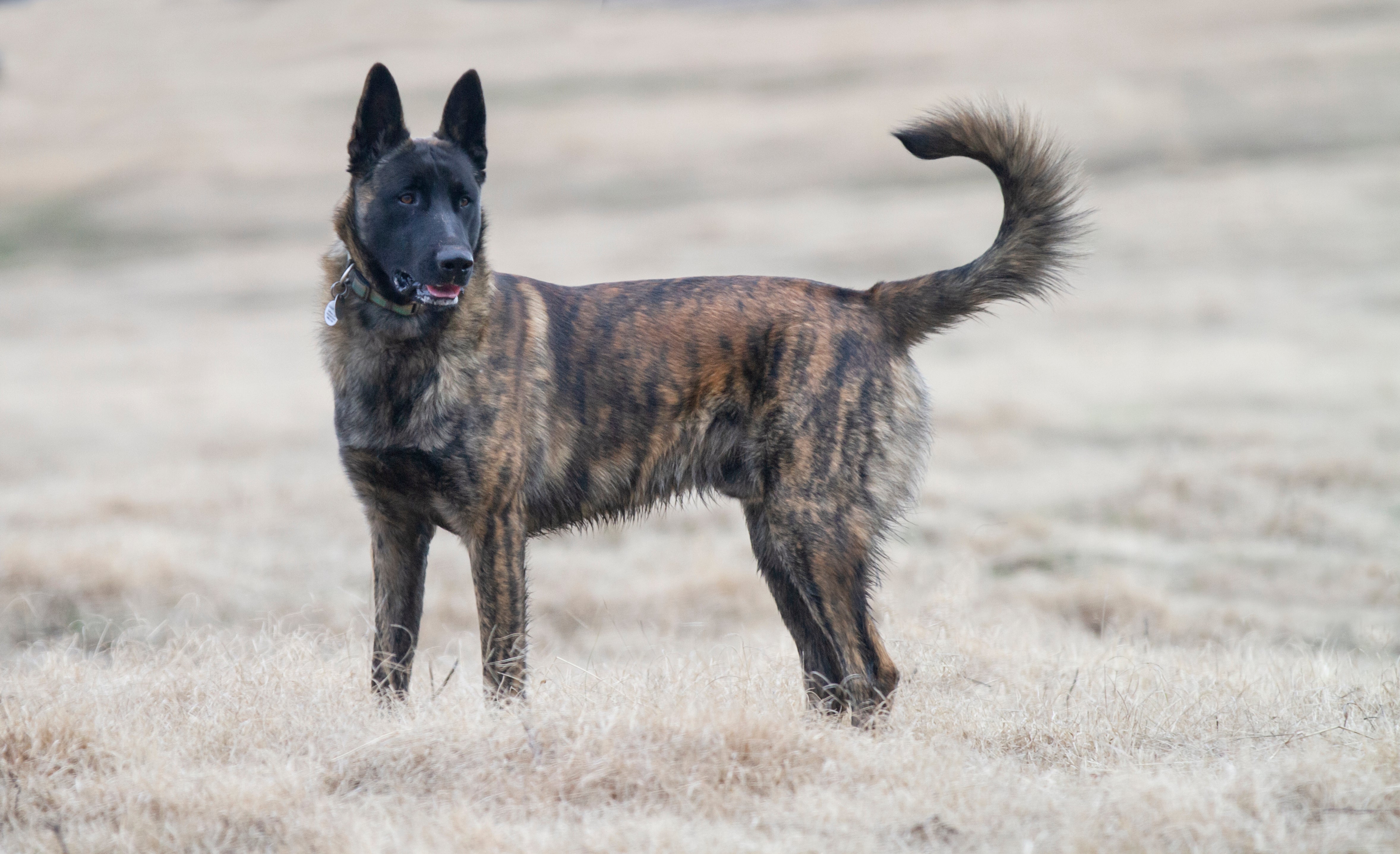Dutch Shepherd
Similar to its cousin the Belgian Shepherd, the Dutch Shepherd is active, energetic, and has a ton of stamina. They are muscular and versatile dogs, originally bred to shepherd flocks of sheep. Their almond-shaped eyes give them a curious and intelligent look, and their triangular ears make them seem perpetually alert, which is fitting because they were once used as guard dogs and drovers. They are powerful and devoted dogs.
Breed characteristics carousel
Learn More
Need to Know
- Might not be suitable for first-time dog owners
- Extra training required
- Generally healthy dog
- Enjoys vigorous walks
- Large dog
- Some drool
- Requires grooming
- Chatty and vocal dog
- Barks, alerts, and may be physically protective/suspicious of visitors
- Could have issues with unknown dogs but gets along with known dogs
- May need additional training to live with other pets
- May need additional supervision to live with children
- Needs a large yard in suburban or rural areas
- Can be left alone occasionally with training
- Happy when they have a job
- Can be a loyal companion family dog
- AKC Registered Breed

Personality
Whip-smart and independent, the Dutch Shepherd is an independent thinker thanks to its origins as a herding dog. Nonetheless, they can be eager to please their owners and are highly devoted to their families. Steadfast and devoted, they make excellent watchdogs, but this inclination means that proper socialization is necessary.
The Dutch Shepherd dog breed was developed in the Netherlands as a herder of sheep and a general versatile farm dog. They were used to guard, drive, and herd in addition to being farm companions. When the Industrial Revolution came and the dogs were out of farm work, they turned to military and police work. They also have worked as search and rescue and guide dogs. Worldwide, the dog is still relatively rare.
Owners of Dutch Shepherd dogs should have some experience with working dogs of this nature. It helps to be fit and athletic as the dogs need a lot of outdoor time for exercise and training activities. Owners will need to be consistent, patient, calm, and firm with training and be willing to socialize the Dutch Shepherd dog early and often. They do best when they have a task to complete.
Dutch Shepherd dogs love to work and expect to do so, meaning they have high exercise needs. They can have downtime after completing their work, but they don’t like to be left alone. They want to be right by their owner’s side, whether on a farm, doing police work, doing guide dog work, or just going for a walk. They need to be mentally stimulated with toys, puzzles, games, and training.
While the Dutch Shepherd dog is adaptable, they thrive in larger homes with ample outdoor space, especially fenced-in yards where they can patrol, romp, and run.
The Dutch Shepherd dog breed’s coat comes in two colors, gold or silver brindle, and three coat types, short-hair, long-hair, or rough-hair. Short-hair Dutch Shepherd dogs need occasional brushing outside of shedding season, while long-haired versions need more frequent grooming. Rough-haired Dutch Shepherd dogs need occasional comb-throughs plus hand-stripping twice a year to remove dead hair. Baths can be on an as-needed basis.
Bred to work, the Dutch Shepherd is a smart dog that loves to be challenged. They can get bored easily, so it’s best to keep it to short training sessions. The more stimulating the work, the more driven they are to complete a task, preferring to herd or work on scent detection over learning tricks. Obedience training is important to keep them well-mannered.
The Dutch Shepherd makes a good family dog for families with older children or no children. They form strong bonds and can be protective of their people. Smaller children might be put off by the dog’s natural instincts to herd, which can often mean nipping at a young child’s heels. Dutch Shepherds can be energetic, so frail or elderly family members might not be the best fit for them. If they are involved in family activities, especially work tasks, they thrive.
The cost of a Dutch Shepherd from a breeder is significantly more than the cost of adopting one from a local shelter or rescue. The adoption fee usually covers additional items such as spaying or neutering, vaccines, and microchipping.

Learn more about feeding and caring for your Dutch Shepherd on Purina.
Did You Know?
- The Dutch Shepherd dog comes in three coat varieties: short-haired, long-haired, and rough.
- They are relatively rare shepherd dogs in the United States.
